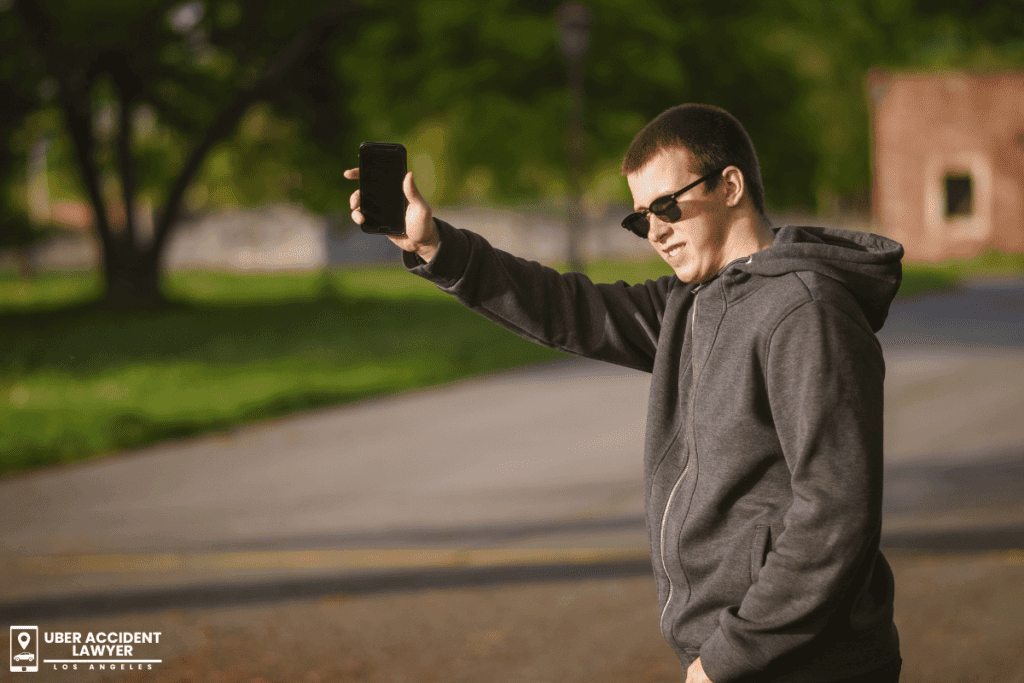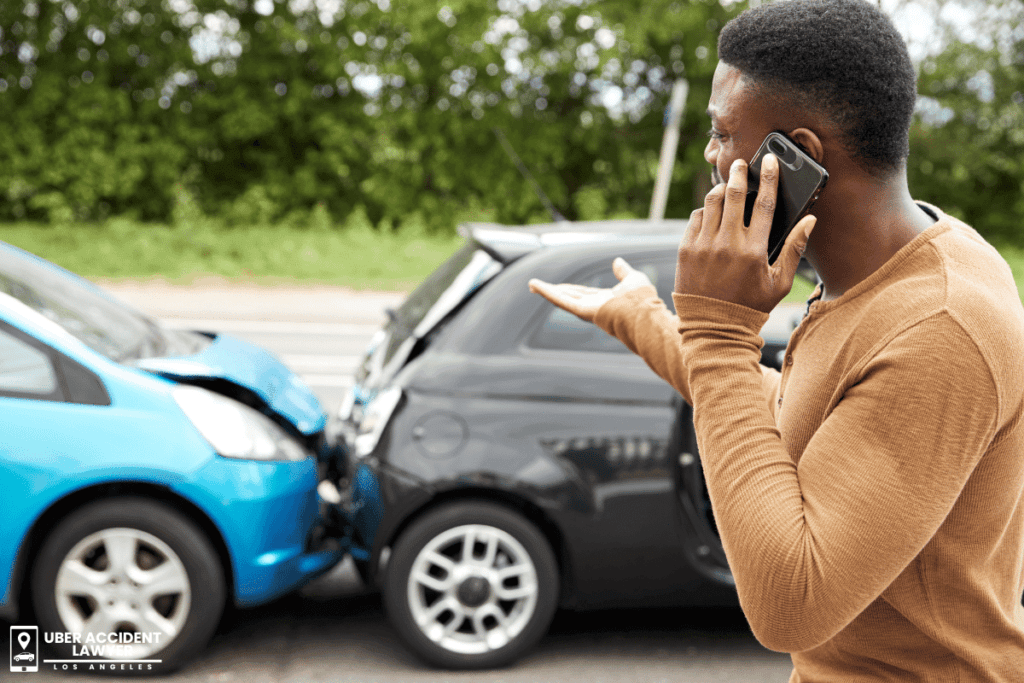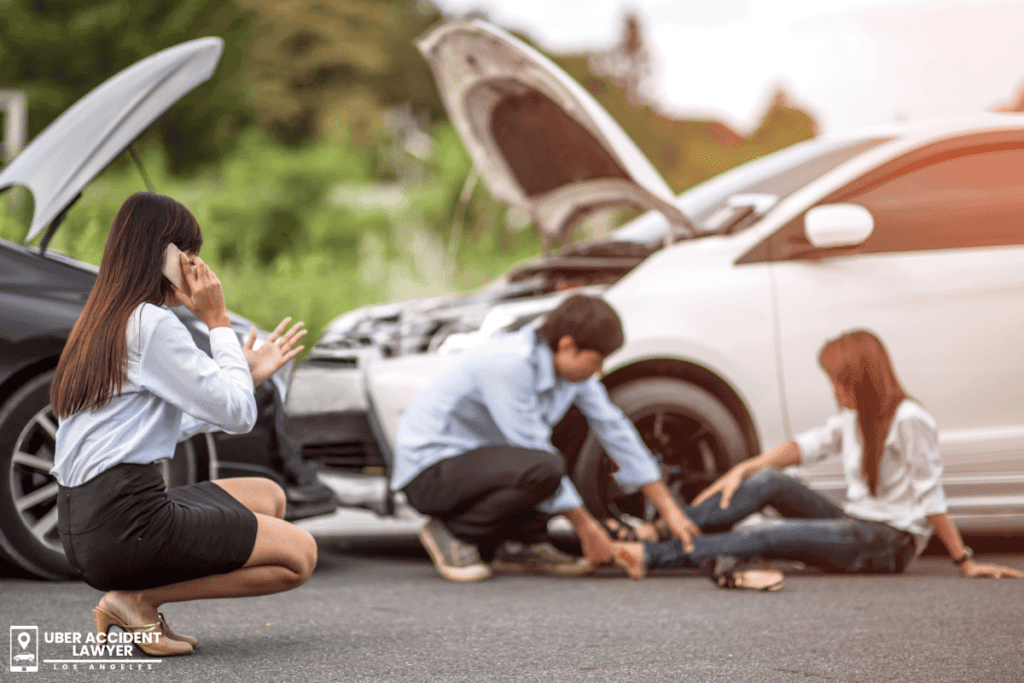Ever wondered what happens if you’re involved in an accident while on an Uber ride in California? It’s a situation no one wants to find themselves in, but it’s crucial to know your rights and protections. This article delves into the specifics of Uber’s insurance policy in California, shedding light on what you’re entitled to if the unexpected happens. Whether you’re a passenger, driver, or third party, we’ve got you covered.
Does Uber Cover You In an Accident in California?
In summary, insurance coverage in Uber accidents in California depends on the driver’s app status and the circumstances of the accident. It is essential to understand the different scenarios and their consequences to ensure proper compensation and coverage.
The Scenarios
Insurance plays a significant role in Uber accidents in California. Uber maintains a comprehensive $1 million insurance policy that covers both the driver and the passenger in case of an accident. However, determining which entity will be responsible for compensation can be tricky and may require some time to identify the party at fault for the accident.
The insurance coverage provided by Uber varies depending on the driver’s app status. When the driver’s app is off, their personal insurance policy is the primary coverage, and the minimum state requirement for insurance coverage in California is $15,000 for injury/death to one person, $30,000 for injury/death to more than one person, and $5,000 for property damage.
If the driver is logged into the app but has not yet accepted a ride request, both the driver’s personal and Uber’s insurance would cover an injured third party.

When the driver has been paired with a passenger and is on the way to pick them up, Uber provides insurance coverage of up to $1 million under certain conditions. If the Uber driver is at fault for the accident, the applicable insurance coverage varies depending on the status of the app when the crash occurs.
If the Uber driver’s app is switched off, their personal insurance policy is the only coverage, and the rideshare company shares no liability for a crash. If the driver causes an accident and has not yet accepted a ride, their own comprehensive and collision coverage would cover the cost of any damage to their car, and they would also be responsible for their own medical bills.
When a rideshare driver has accepted a ride or has a passenger in the vehicle, passengers and third parties are protected by the rideshare company’s full insurance coverage. Uber provides $1,000,000 liability coverage, at least $1,000,000 uninsured and underinsured motorist coverage, and collision and comprehensive coverage with a $1,000 deductible when a passenger is in the vehicle.
In California, Uber maintains injury protection for rideshare and delivery drivers for accidents that occur while they’re online and waiting for a trip. This extra insurance maintained by Uber is contingent on the driver’s personal insurance, including comprehensive and collision coverage.
Coverage Limitations and Exceptions
Despite the seemingly comprehensive coverage offered by Uber, certain limitations and exceptions are present. The insurance does not cover any personal use of the car. This exception means the moment the Uber app is off; you’re not covered by Uber’s insurance policy.
Additionally, various limits apply to the total amount of liability Uber will cover in accidental situations. Lastly, requirements for filing claims, such as reporting the incident to Uber promptly, must be adhered to for the claim to be considered valid.
Note that these limitations and exceptions may vary based on the specific laws and regulations in different states. It’s crucial for drivers to maintain a personal insurance policy to ensure coverage during times when Uber’s insurance does not apply, such as when the app is off, en route, or on a trip, adhering to mandatory minimum limits and maintaining personal automobile insurance as required.

Specific Laws for Rideshare Drivers in California
Rideshare companies in California, including Uber, fall under the jurisdiction of the California Public Utilities Commission (CPUC). They are technically classified as Transportation Network Companies (TNCs). Noteworthy, the state requires these companies to maintain $1 million in liability coverage from the moment a driver accepts a ride till the passenger is dropped off.
Notably, California introduced the period-one coverage law in July 2015, setting minimum insurance requirements for TNCs during the time when the app is on, but no ride has been accepted.
During this period, the state requires $50,000 per person and $100,000 per accident for bodily injury, along with $30,000 for property damage coverage, and an additional $200,000 in excess liability coverage.
California’s rideshare laws have also been established regarding driver backgrounds, vehicle inspections, and being zero-tolerance for drugs and alcohol. Failure to comply can result in penalties, fines, and even loss of the license to operate.
What Happens After an Uber Accident in California?
After a collision while driving for Uber in the golden state, there are specific steps that come next. Your adherence to these actions greatly affects your compensation, if applicable.
Reporting the Incident to Uber
Once an accident occurs, initiate the reporting process by contacting Uber. Open the Uber app, find help options, and navigate to the “Trip and Fare Review”. Select the specific trip that involved the accident, click on “I was involved in an accident”, and report it.
The Uber Support team, upon receiving the report, initiates an investigation into the incident. This step is vital, as ignoring or delaying to report the incident could jeopardize your claim. After reporting the incident, save any screenshots documenting your report as evidence for further proceedings.
Getting Medical Attention and Documenting Injuries

After an Uber accident, your health takes priority. Seek immediate medical attention, even if you think the injuries are minor. In certain cases, symptoms may not manifest immediately after the incident; they could appear hours or even days later.
Besides attending to critical medical needs, documenting these injuries is crucial for any insurance claims. Request documentation from every doctor, hospital, or emergency service visit. These documents establish a direct connection between the accident and your injuries, making them an integral part of your compensation claim.
Role of Personal Insurance in Uber Accidents
While Uber provides insurance coverage to its drivers, personal auto insurance may cover costs when Uber insurance doesn’t, contingent upon your policy’s terms. This is particularly significant for Uber drivers, whether they are logged into the Uber app and accepting rides, waiting for ride requests, or offline, as insurance coverage and responsibilities vary in these different states.
When Your Private Insurance Comes Into Play
Overall, private insurance plays a significant role in Uber accidents in California, especially when the driver is not working and the Uber app is off. California law requires every driver to carry a minimum insurance coverage, but if injuries are severe, costs might exceed this minimum. I
If the driver’s personal insurance is insufficient, Uber will provide additional coverage of up to $100,000 in bodily injury per accident, $50,000 in bodily injury per person, and $25,000 in property damage per accident during the intermediary state when the driver has the app open and active but hasn’t yet accepted a ride
Dealing with Insurance Denials
There may be circumstances where your personal insurance company denies your claim following an Uber accident. Your personal auto insurance typically doesn’t cover commercial activities, including rideshare driving. However, State laws vary as certain State laws require personal auto policies to include coverage for some parts of the rideshare driving experience.
If your claim gets denied, consult with a legal professional immediately. They’ll guide you on the next steps and advocate for your interests, potentially helping you navigate the complex realm of rideshare insurance coverage issues.
Seeking Legal Help After an Uber Accident
If you’re involved in an Uber-related accident, don’t hesitate to seek legal advice. Understanding your rights, insurance policies, and potential liabilities can be overwhelming, but a legal expert can help you navigate these waters.
They’ll guide you in determining who’s responsible and ensure you’re adequately compensated for your injuries. Remember, knowledge is power, and in this case, it can be the key to your recovery. Don’t face this challenging situation alone – get the legal help you need.

